Mealtimes bring overlanders together but their planning and prep could create no small amount of stress. These camp cooking strategies will ease the way. By Lea Erasmus
The who, what and when of meals could become a bone of contention, no matter the group size. In our conversations with clients at Ultimate Routes, our trip planning service, we’ve come across a few interesting ways to tackle this task. To make mealtimes well organised and enjoyable, decide on one of these strategies in advance.
How to approach cooking duties
1. Kitchen take-over
(Great for 4–10 people on a trip)
One couple/family/team takes over the camp kitchen for the day. Main meals (and dishes!) are their responsibility; the rest can kick back, relax and enjoy. This allows for creative freedom of meals while simplifying your shopping list and volume of food supplies to carry along.
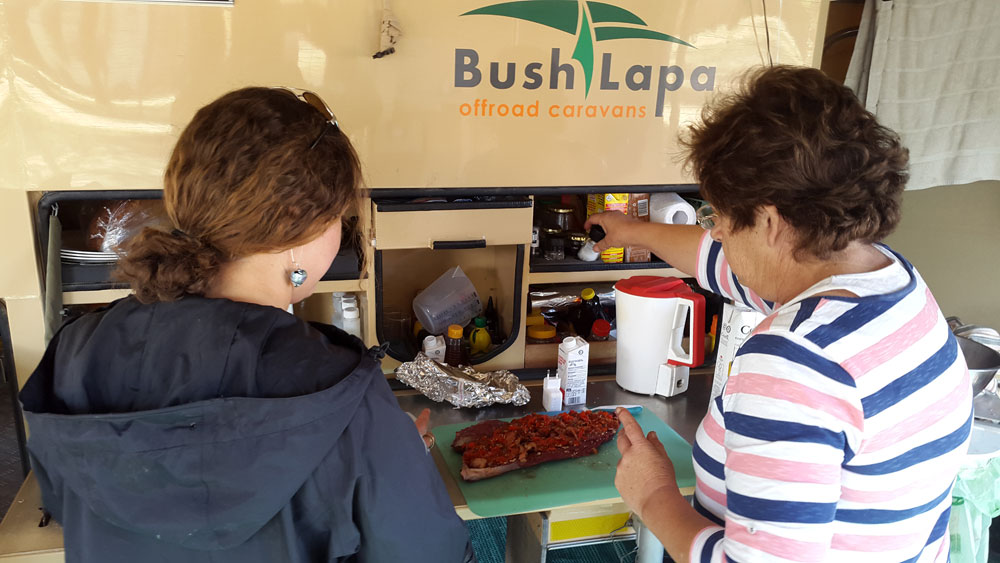
2. BYOM (Bring Your Own Meat)
(Great for 4–10 people on a trip)
Each family/vehicle packs their own meat for the meals planned. The team responsible for the day’s main meal/s specifies the dish for the day, collects the group’s meat to prepare and provides all other ingredients. This takes a little more coordination and recipe planning – nothing that a good old Excel spreadsheet can’t solve. Each vehicle still provides their own smaller meals, snacks and drinks.
3. Each to his own
(Best for very small/large groups and people with special dietary requirements)
Some campers prefer to share nothing more than the campfire and good conversation about the day’s sightings. Each family/vehicle prepares their own meals and cleans their own dishes.
4. Bring and share
(For family/close friends travelling together)
Chances are good all parties on a trip are kitted out with camp kitchen equipment. While it’s great to have all the gear, it’s more practical to split the equipment between the group to avoid carrying duplicates. Same goes for the food supplies. One person does the shopping, splits the bill and each vehicle packs what they can fit. This puts more pressure on one person to build and buy the shopping list, manage a kitty and distribute the stocks. Best suited for weekend trips.
Ten camp cooking tips you wish you knew earlier
1. Plan meals and prepare specific shopping lists. This reduces shopping time on longer trips (especially to limit contact in times of Covid); makes for very little wastage and doesn’t overcrowd the already-limited packing space. Marisa Smit goes as far as to print meal plans for each day onto ‘flash cards’. Each card shows the day, ingredients and recipe for the planned meal. She even includes perfectly timed shopping list cards, planned for the day of stocking up – big effort but very nifty!
2. Decide what specialty products you’ll need (like sundried tomatoes, gluten-free ingredients, sauces, etc.) and bring them from home. Our neighbouring countries are well stocked with meat and basic fresh produce, tinned foods and drinks.
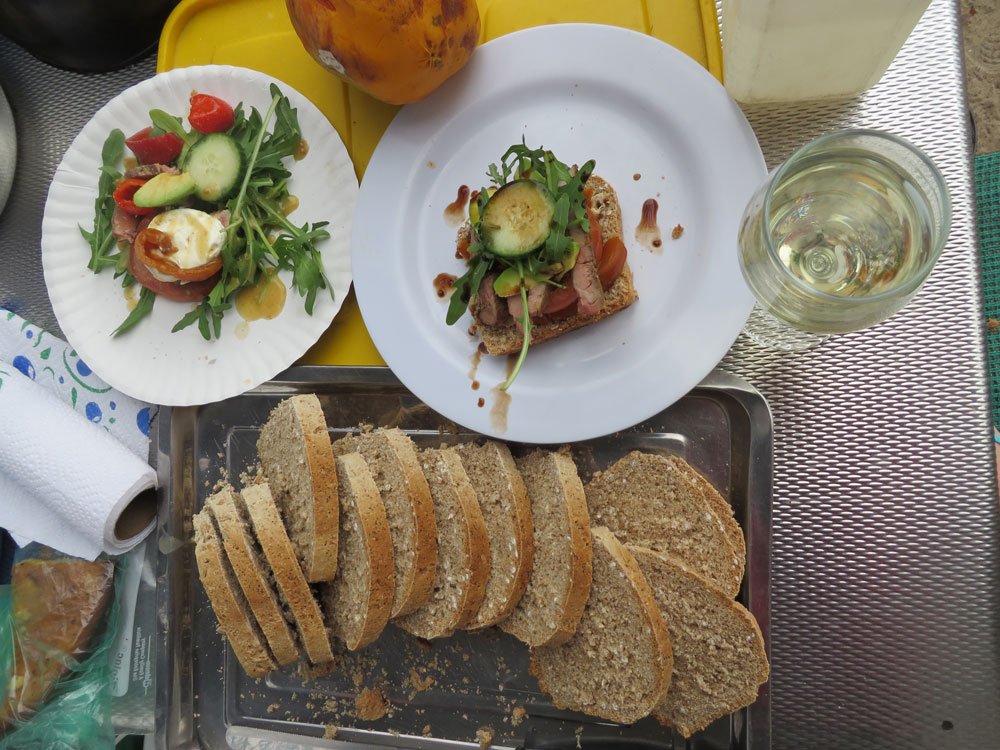
3. Make large one-pot-wonders like a curry, stew or potjie. Add rice or couscous straight in to soak up the sauce (also avoids more dishes). Keep leftovers for the following night or as toppings on the next day’s sandwiches. Bento Box is a light steel container that seals well and doesn’t crack (on those bone-shaking roads in the bush).
Also read: Recipe for tomato bredie
4. Try your hand at baking bread! We’ve found bread dough to be forgiving in any climate and a great afternoon activity when you’re back in camp between game drives. There are so many recipes and styles to try out – you may just get hooked. Use the bread to soak up sauce from the pot or make sandwiches, a quick and convenient meal.
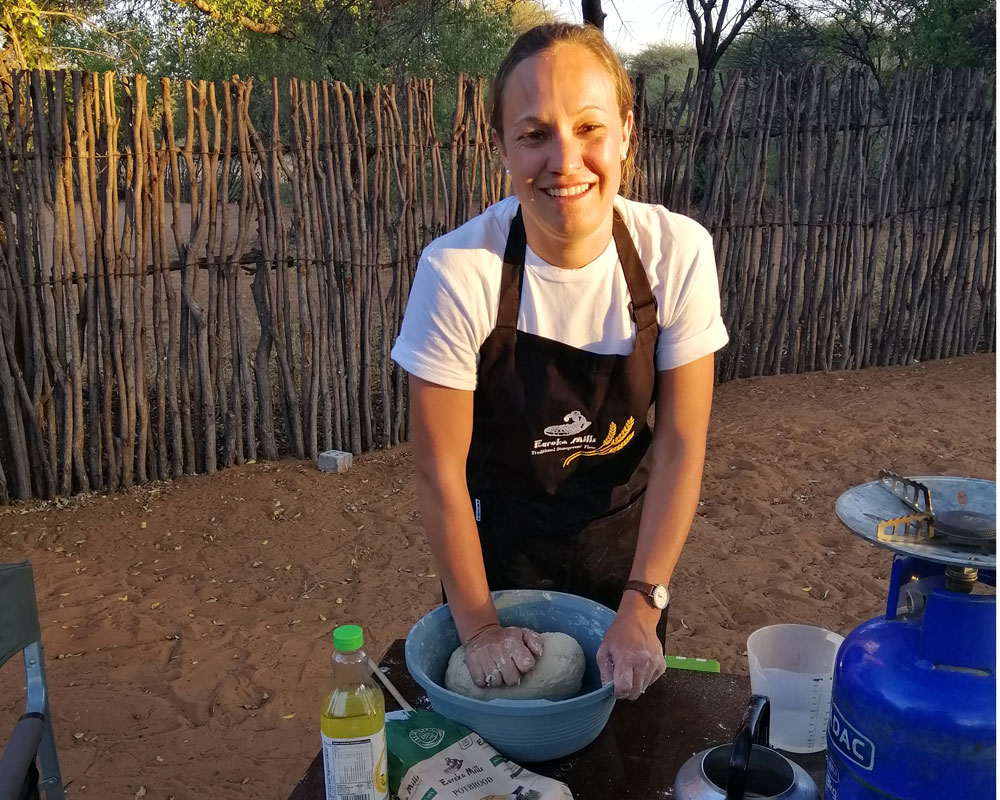
5. Ingredients like couscous, rice, polenta, tinned food and box-salads are often overlooked but great when it comes to adding variety and saving on space.
6. Pre-cooked food like patties, mince, pastas and pies can be a lifesaver on days when your trip has been long. Sometimes food prep needs to take the back seat to setting up camp and getting hold of a cold one!
7. Vacuum pack items like pre-cooked food or raw meat in pack sizes that fit your fridge the best. Pre-order meat in the right dimensions from a butcher in your destination country. Stasher bag is an eco-friendly food-grade silicon, sealable container. Useful for keeping cooked or raw ingredients fresh and conveniently portioned, also good for leftovers.
8. Get thrifty: see what equipment could have multiple uses. A great example is the flat-base cast iron pot (platboompotjie). Prepare dinner, breakfast, bread and even some fancy camp desserts…that’s a real one-pot wonder!
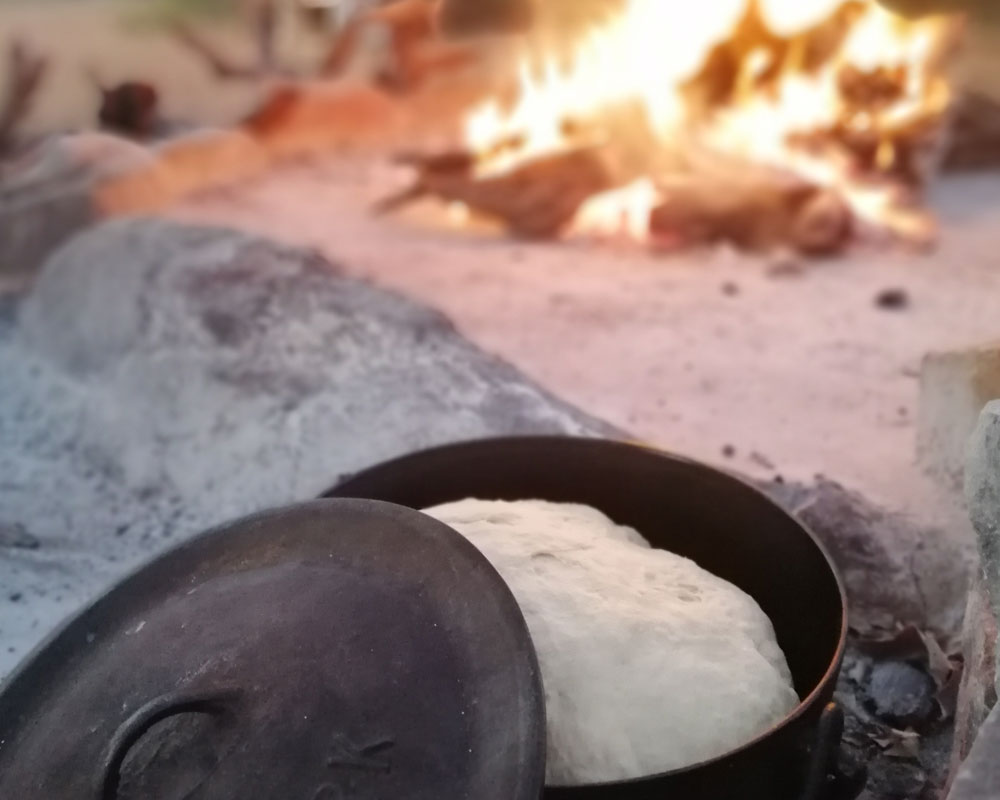
9. Make food for the kids early to avoid additional stress of catering for a large group. The so-called ‘suicide hour’ is real even for kids up to primary school age… Feed the beasts early and enjoy the rest of your night.
10. When water is scarce (like in Kgalagadi, Central Kalahari and Khutse), leave the messiest meals for the final night. Either use your last water on the dishes OR better yet, leave dirty until you hit the next camp with water supply.
Also read: What to cook on your camping trip
Staying fired up
Most camping meals are dependent on a fire. Ben Krog gave us this advice to prevent flaring tempers around the dinnertime flames.
1. Keep a central fire going for warmth, atmosphere and sometimes even safety! Each camp has a different fireplace setup and few cater for an atmosvuur AND coals for braaing. This is when a portable braai comes in handy. Scrape coals from the main fire into the braai to prepare your meat and other fire food.
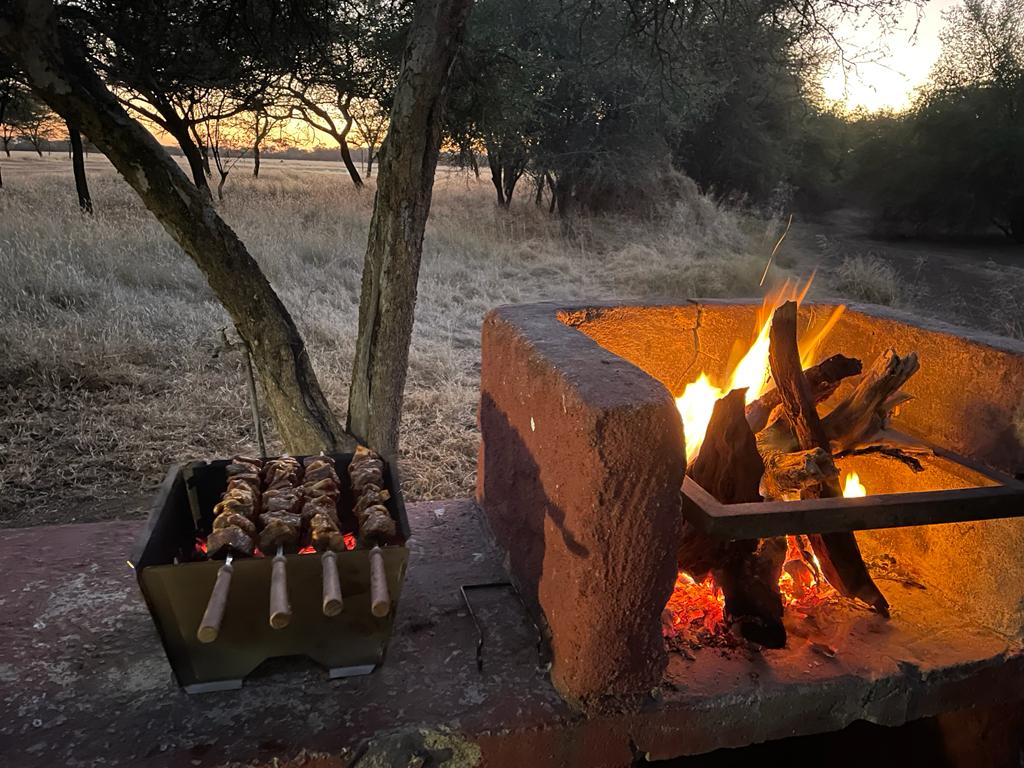
2. Never run out of ice; a plan; friends; love and wood for the fire! Put money into a kitty for firewood as this can become a sore point when John throws one too many of Jane’s bags of wood onto the fire.
Nifty products recommended by other campers
– Flat-packed portable braai from Western Cape company CAM Products.
– The Braai Bag by Craft Braai, a sealable mesh bag for food that is fiddly on a grid. Flexible and easy to pack.
What are your best camp cooking tips for saving space, time and tempers?
Contributors: Mike Bosman, Marisa Smit, John & Sandy Stewart, Fiona Smit, Ben Krog
Want to get regular overlanding inspiration? Sign up for the Tracks4Africa newsletter.
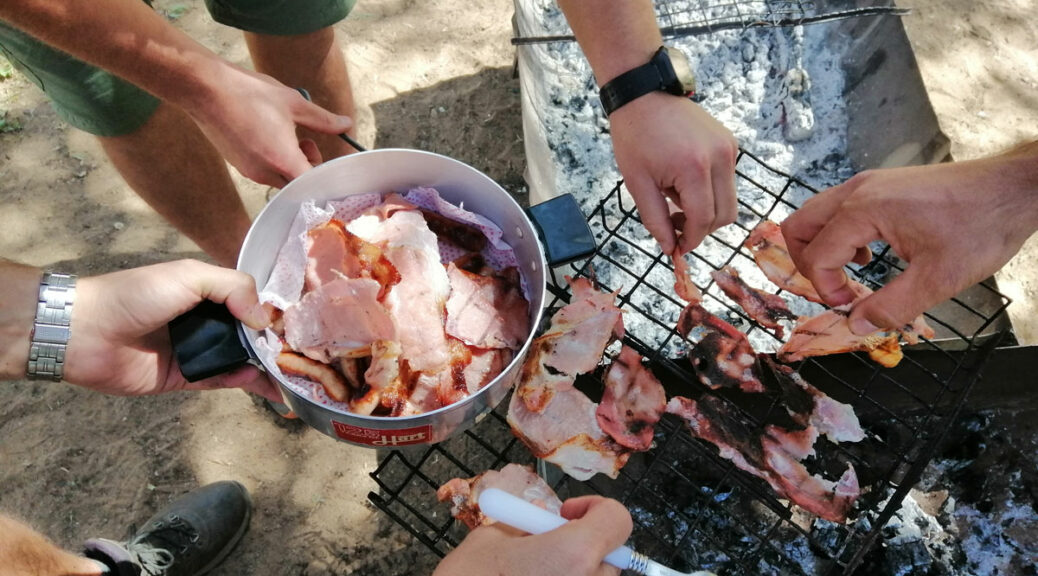

There’s nothing better than sending the kids out into the Kalahari to do some foraging and hunting, while Mum & Dad sip a good wine. Beats the need for detailed planning.
Also true.
What do they return with for the pot or the grill ??:-)